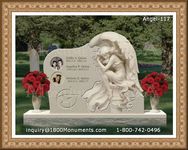|
Facts To Know When Dealing With Jewish Traditions For Funeral
It is a Jewish funeral traditions not to leave the deceased unattended. The family or those conducting the funeral services must provide a Shomer, or watchmen, who will sit with the body until the burial. The very first person to be called upon a death is the rabbi, who decides upon a time for funeral proceedings. Funerals are typically held in the temple or synagogue, although many Jewish families are now opting for a graveside service only.
Jews do not believe in viewing the body after death; it is disrespectful because the deceased person cannot look back at you. Therefore, Jewish funerals are usually closed casket.
Embalming, a process used for sanitation and temporary preservation, is avoided unless it is required by local law. The sacred society, or the Chevra Kadisha usually take on the role of preparing the body. This is a group of pious Jewish followers who perform the Jewish Taharah, or purification.
The body is first ritually bathed and then dressed in the Tachrichim, or shrouds, the traditional burial garment. It is a simple white garment that contains no pockets. This symbolizes the fact that the deceased takes nothing with them when they depart this world and that God will not judge on material possessions but rather their deeds and merits.
It is tradition that the casket be of wood only with no metal or other adornments. It is also customary to not have floral arrangements at the funeral as these are seen as unnecessary.
Funerals usually last anywhere from 20 to 30 minutes. They consist of a eulogy, Scripture readings, and reading of the Psalms. Family members and other mourners perform the K'riah, or the rendering of the garment, either before or after the ceremony. This consists of tearing their clothing or placing a black ribbon on the outside of their clothes to show that they are in mourning. While Jewish funeral traditions are not kept as strictly as they once were, they are still followed by those in the Jewish faith.
|
|



























